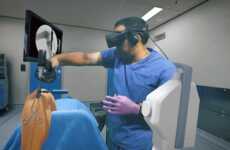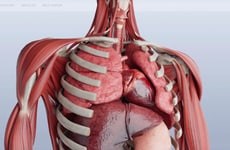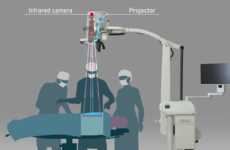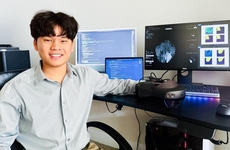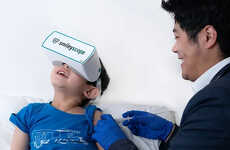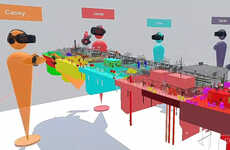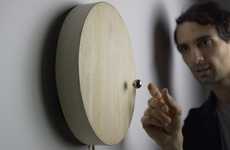
Stanford Medicine's VR Tool Offers a 3D Model of Medical Scans
Ellen Smith — October 13, 2017 — Lifestyle
References: med.stanford.edu & med.stanford.edu
In addition to the immersive learning tools that a university offers its students, medical trainees can now experience a more in-depth, hands-on education through Stanford Medicine's virtual reality training tool.
By combining imagery from MRIs, CT scans, and angiograms, medical professionals, students, and patients can discover an immersive 3D model that can be moved and manipulated. The multi-faceted tool aims to be beneficial to both the patient and the care taker, offering a more interactive and comprehensive explanation of the patient's neurological workings.
For medical residents, this engaging classroom tool takes the individual on a journey through a patient's brain, that's led by an informed avatar in a white lab coat. The system enables students to gain a deeper understanding of various neurological procedures, as well as a more accurate insight of what an aneurysm, tumor or skull deformity looks like from different angles.
In addition to training, this tool is being used to prepare patients for an upcoming procedure, as it provides the surgeon with the opportunity to walk the individual through a scientifically accurate and personalized rendering of the operation.
By combining imagery from MRIs, CT scans, and angiograms, medical professionals, students, and patients can discover an immersive 3D model that can be moved and manipulated. The multi-faceted tool aims to be beneficial to both the patient and the care taker, offering a more interactive and comprehensive explanation of the patient's neurological workings.
For medical residents, this engaging classroom tool takes the individual on a journey through a patient's brain, that's led by an informed avatar in a white lab coat. The system enables students to gain a deeper understanding of various neurological procedures, as well as a more accurate insight of what an aneurysm, tumor or skull deformity looks like from different angles.
In addition to training, this tool is being used to prepare patients for an upcoming procedure, as it provides the surgeon with the opportunity to walk the individual through a scientifically accurate and personalized rendering of the operation.
Trend Themes
1. Immersive Learning Tools - Opportunities for creating virtual reality tools that enhance the learning experience in medical education.
2. Interactive 3D Models - The development of tools that combine medical scans to create interactive 3D models for medical professionals, students, and patients.
3. Patient Preparation Tools - Applications that use virtual reality to help surgeons prepare patients for procedures by providing personalized renderings of operations.
Industry Implications
1. Medical Education - Disruptive innovation opportunities in creating VR tools for immersive learning experiences in medical education.
2. Medical Imaging - Opportunities for developing technologies that combine different medical scans to create interactive 3D models.
3. Healthcare Services - The advancement of virtual reality tools to improve patient preparation and communication in healthcare.
1.4
Score
Popularity
Activity
Freshness

